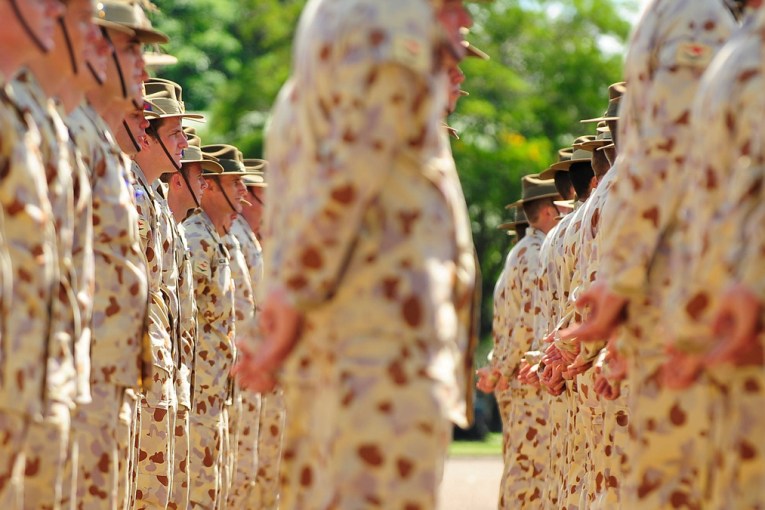Free speech at a price? Groups oppose changes
Minority groups overwhelmingly oppose the changes to the Racial Discrimination Act announced by Attorney-General George Brandis, despite the government’s insistence that free speech will be protected.
Groups representing Jews, Muslims and Indigenous Australians were united in their condemnation of the amendments, which remove the words insult, offend and humiliate from a controversial section of the Racial Discrimination Act.
“It is not, in the Government’s view, the role of the state to ban conduct merely because it might hurt the feelings of others,” Senator Brandis said yesterday.
But ethnic and religious communities are almost universally opposed to the changes.
Peter Wertheim, executive director of the Executive Council of Australian Jewery (ECAJ) said “minority communities, academics and human rights advocates – their response is one of uniform dismay and disapproval of the draft as it currently stands”.
Islamic representatives told The New Daily the changes may reduce protections for minorities.
“Any lessening of the protection currently provided to minorities is a concern,” the Islamic Council of Victoria’s secretary Ghaith Krayem said. “As they’re reported, it raises some concerns.”
Both the ECAJ and the Islamic Council said they are continuing to review the changes and expect to make formal submissions to the Minister.

Attorney-General George Brandis. Photo: AAP
Internal dissent
Senator Brandis also faces backlash within his own party.
The head of the Prime Minister’s Indigenous Council, Warren Mundine, has criticised the move. Speaking to the ABC, he described it as “an overreaction” to the Andrew Bolt case.
Racial discrimination commissioner Dr Tim Soutphommasane told The New Daily he has “very grave concerns that this amendment will severely weaken leal protection against racial vilification and encourage people to believe that they can racially abuse and harass someone with virtual impunity”.
Coalition MPs Craig Laundy and Ken Wyatt also publicly opposed any changes to the Act earlier this month. Mr Laundy told The Conversation he would like the law “to stay exactly as it is”.
Mr Wyatt told Fairfax Media that “Australia has come a long way in the last 30 or 40 years and what I wouldn’t like to see is a regression that allows those who have bigoted viewpoints to vilify any group of people at all”.
Currently, those who feel offended or discriminated against can lodge a complaint with the Australian Human Rights Commission, and may be awarded compensation or restrictions may be imposed on the person who said the words.
Protection of free speech?
The Government intends to scrap sections 18B, 18C, 18D and 18E of the current Act. In their place, a new section will be added that makes racial vilification or intimidation unlawful, Senator Brandis told reporters in Canberra.
Explaining these changes to the media today, Senator Brandis said that laws which were designed to prohibit racial vilification should not be used as a vehicle to attack legitimate freedoms of speech.
“I have always said that freedom of speech and the need to protect people from racial vilification are not inconsistent objectives,” Senator Brandis said.
Section 18C: replaced
Gregory McIntyre, a Perth-based barrister with extensive experience in discrimination law explained that the new section would “narrow” what constitutes racial discrimination.
Deleting the current wording would mean that it would no longer be unlawful to “offend, insult, humiliate or intimidate” a person or group of people in public because of their race, colour or national or ethnic origin.
“The current draft suggests [the Government] wants to apply the legislation to a more serious category than that to which it applies at present,” said Mr McIntyre.
Section 18C is the same section conservative commentator Andrew Bolt contravened in 2011 in a column he wrote about “fair-skinned people” choosing to identify as Indigenous Australians for political purposes and career advancement.
The Senator told the media that offending, insulting or humiliating people amounted to “hurt feelings” and should not be unlawful.
Section 18D exemptions: expanded
Under the changes, section 18D will become a “more general exemption”, said Mr McIntyre.
Rather than having to rely on a difficult, five-part test to avoid a penalty, a person answering a complaint would simply need to assert that they were participating in almost any kind of public debate.
Racial discrimination would be impossible “in the course of participating in the public discussion of any political, social, cultural, religious, artistic, academic or scientific matter,” said the draft released by the Attorney-General’s office.
Such a change is “clearly flagging that anything which is said in political discourse is exempt”, said Mr McIntyre.
-with AAP









